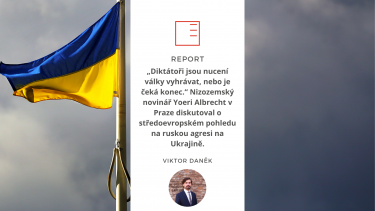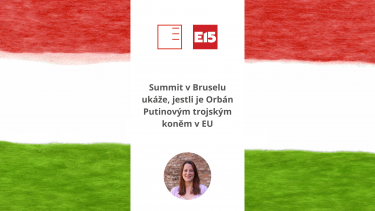ČRo Plus | What will the new EU migration rules commit the Czech Republic to?
After many years of unsuccessful efforts, EU member states and MEPs agreed today on new migration and asylum rules for the European bloc. The series of standards provides for, among other things, more effective checks on migrants and faster return of failed asylum seekers to their countries of origin. It also introduces compulsory solidarity among all EU states, which can help overburdened countries either by accepting part of the migrants or by providing financial or material aid. Our deputy director Viktor Daněk commented on the topic for Radiožurnál.
Show moreČRo Plus | Measures to mitigate the energy crisis will continue
Enhanced solidarity, faster deployment of renewable energy and protection of EU citizens from excessive energy prices. EU energy ministers in Brussels today reached agreement on an extension of three measures adopted last year in response to Russia's war against Ukraine. Their aim is to mitigate the impact of the energy crisis. Our senior researcher Kateřina Davidová commented on the topic for ČRo Plus.
Show more
CNN Prima News | Hungary's position at the European Council
Our Executive Director Martin Vokálek was a guest on CNN Prima News, where he commented on the results of the European Council Summit. In particular, he commented on Viktor Orbán's position on the opening of accession negotiations for Ukraine.
Show more
Report | "Dictators are forced to win wars or face the end."
Read a report from the event "Dictators are forced to win wars or face the end." At the event, Dutch journalist Yoeri Albrecht discussed the Central European perspective on Russian aggression in Ukraine. The report was written by Viktor Danek, Deputy Director.
Show morePolicy Paper | Overcoming barriers to unlock potential for a Just Transition in Czechia
The energy transition focuses on the swift and full decarbonization of our economies by moving away from fossil fuels such as coal, natural gas and oil towards carbon-free and preferably renewable energy sources such as wind, solar, geothermal, bioenergy and hydropower. The global community agreed to limiting the global average temperature to 1.5C to prevent worsening of potentially irreversible effects of climate change. Writes Jonathan Lyons.
Show morePolicy Paper | European Union Values and Member States: Crises, Solidarity, and the Role of the Rotating Council Presidency
In order to fight major problems facing the European Union, including the constant accusations of the democratic deficit of the entire integration project, it is necessary to understand the importance of adopting, respecting, and implementing fundamental European values in member states. Writes Dario Čepo in his Policy Paper.
Show moreBlog | Prague passable - or clogged? The dilemma of sustainable transport in the city
Prague faces increasing dependence on intensive car traffic, leading to growing problems with traffic, parking and deteriorating quality of public space. The increased number of vehicles means not only pressure on safety and traffic fluidity, but also environmental risks associated with internal combustion engines. Despite growing public support for public transport and car traffic regulation, finding a compromise between individual convenience and urban sustainability remains a challenge.
Show more
BLOG | Slovakia’s Foreign Policy after the 2023 parliamentary elections
On September 30th, the long-awaited parliamentary elections held place in Slovakia drawing particularly strong global attention due to their perceived impact on the nation's democratic trajectory and their significance for the unity of the European Union. As a result, Robert Fico, leader of the opposition Smer-SD party, and a former Prime minister in three governments, emerged victorious once again, while his populist, aggressive, and anti-West rhetoric sparked further concerns among the EU leaders. Writes Simona Štibraná.
Show moreEURACTIV | The road to the EU does not end with the summit. What now awaits the aspiring countries?
Several countries from Eastern Europe have opened the way to the Union. During the last summit of the year, EU leaders agreed to open accession negotiations with Ukraine and Moldova and conditionally with Bosnia and Herzegovina, while Georgia was granted candidate status. What concrete steps are now in store for these countries? Our senior researcher Jana Juzová commented on this topic.
Show moreE15 | Summit in Brussels will show if Orbán is Putin's Trojan horse in the EU
Viktor Orbán is the only EU leader who has stated in advance that he does not intend to support the opening of accession negotiations with Ukraine. The question is what his motivations are and whether he will be softened by the unblocking of EU funding for Hungary. Our senior researcher Jana Juzová commented on Orbán's position at the Summit for the daily E15.
Show moreStaroměstské náměstí 4/1
Prague 1 - Staré Město
110 00
tel.: +420 212 246 552
email: europeum@europeum.org
https://www.europeum.org









